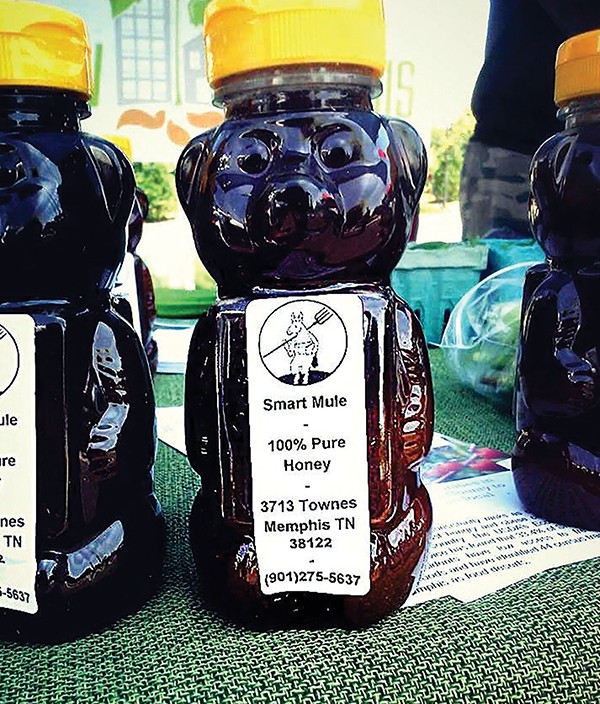Teacher-turned-urban agriculturalist Adam Guerrero, along with a handful of teens, is working to make economically disadvantaged areas a bit more sustainable.
Under the moniker “Smart Mules,” a term coined to describe the collective’s persistent work ethic and intelligence, Guerrero and his young comrades are in the process of transforming around 14 vacant lots into community gardens. The lots are primarily located in the areas of North Hollywood and New Chicago. And the group also maintains a mini-farm at a residence at 2267 Shasta.
The objectives with the community gardens are to suppress the presence of blighted properties, food deserts, and poor diets in Memphis.

bee farm
“With there being about 3,000-plus vacant lots in Shelby County, most of it in North and South Memphis — the places with food deserts, low education scores, and high unemployment — it just seems like a natural fit,” Guerrero said.
Costs for the lots acquired thus far have been in the ballpark of $250 to $500. An award of $1,000 from by the National Garden Association has helped cover some of the cost to obtain the neglected properties.
To transform the abandoned lots into thriving community gardens, the group removes high grass and weeds, and then they harvest and compost leaves, wood chips, and horse manure to create fertilizer for the soil. Once the soil is ready, they plant seeds for fruits and veggies such as strawberries, bell peppers, tomatoes, and cucumbers.
Besides acting as gardeners, the Smart Mules are also beekeepers. They collect the honey and beeswax that the hive produces at their Shasta location. In addition to bottling the honey, they use it to make mead. They use the beeswax to make soap and candles.
In collaboration with GrowMemphis, all of the Smart Mules’ products are sold at the Evergreen Community Farmers Market and Cooper Young Community Farmers Market.
Last year, this brought in nearly $5,000 for the small group, according to Guerrero. Although he funds the restoration and gardening efforts, he doesn’t profit from the endeavors. Instead, he allows the teens to split all of the proceeds.
Jovantae Thomas started gardening with Guerrero during his ninth grade year at Memphis Academy of Health Sciences. Guerrero was his teacher at the time and informed him of the opportunity to help with his home garden.
Now 20 years old, Thomas is still working with Guerrero — a proud member of his Smart Mule collective. It provides him and his peers with the opportunity to do something productive instead of destructive.
“It helps keep you out of trouble,” Thomas said. “You’re never bored when you’re working. There’s nobody hassling you.”
Cortez Washington also started working with Guerrero as a teen. This has helped the 20 year old learn a lot about gardening and life as a whole over the years.
“It’s opened up a whole new view,” Washington said. “I’ve learned about different types of seeds, different ways to grow, and about compost and spreading manure. You’re able to learn and help at the same time. I’m just thankful for the opportunity.”
Back in 2011, Guerrero received national attention after his home garden was deemed a code violation by the Shelby County Environmental Court.
A petition to save his garden garnered several thousand signatures and media outlets such as the Washington Post brought national awareness to the situation. In the end, Guerrero was allowed to keep his garden but was required to make minor adjustments.



 Louis Goggans
Louis Goggans  LG
LG  LG
LG 


 NPR
NPR  NPR
NPR 
